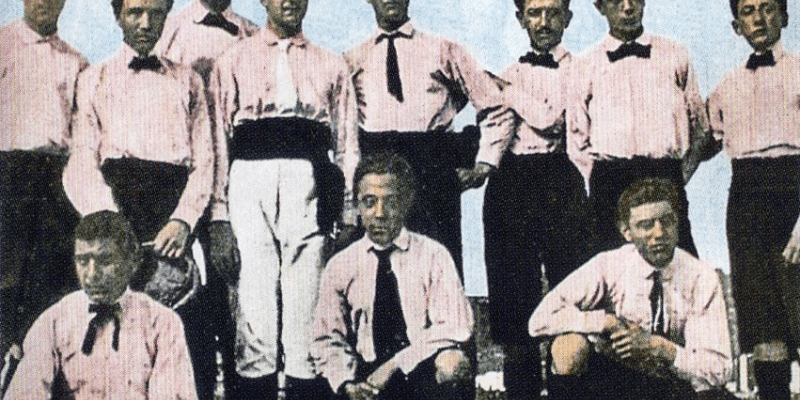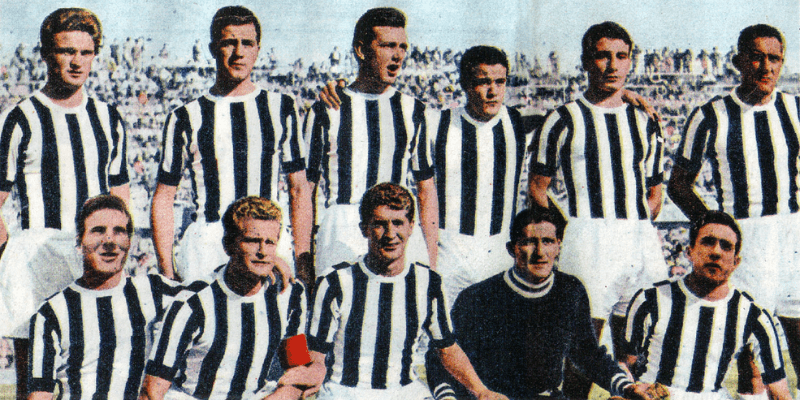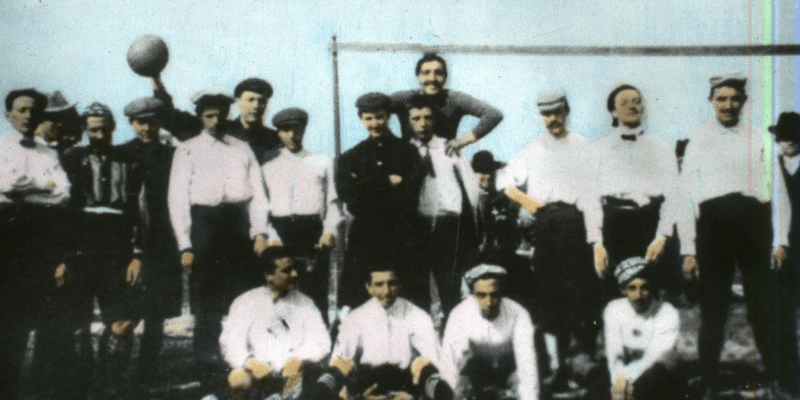From a simple schoolyard dream to a global football empire — when was Juventus founded? Let’s join KorKick as we rewind time to the origins of one of world football’s greatest institutions, then trace how it carved its legend.
Juventus was officially founded on 1 November 1897, in Turin, Italy, by a handful of students at the Massimo d’Azeglio Lyceum. Back then they called it Sport-Club Juventus, reflecting a youthful spirit (the Latin iuventus means “youth”). Over more than a century, it evolved from humble beginnings into Italy’s most successful club, racking up domestic and European glory.
Below is the full story — the founding, early struggles, golden eras, scandals, modern rebirth, and lasting impact.
The Birth Of La Vecchia Signora

Origins Among Students in Turin
In late 1897, Turin’s young enthusiasts of the new game of football congregated after classes. Among them were Eugenio Canfari and his brother Enrico, plus other pupils of the Lyceum school, who started meeting to kick a ball. Their modest gathering on 1 November 1897 is today recognized as the birth date of Juventus.
Initially, the club was multisport in concept — not just football — and the name Sport-Club Juventus mirrored that. But football quickly took center stage.
The name Juventus (Latin for “youth”) symbolized energy, fresh ambition, and a future to be built.
The club’s earliest kits were not black and white: they experimented with pink and black, before adopting the iconic black and white stripes in around 1901–02, inspired by English sides like Notts County.
Early competitive steps and growth
Juventus first entered the official competition in 1900, playing in the Italian Football Championship. Their debut match was a 1–0 loss to Torinese.
By 1905, Juventus won its first scudetto (Italian championship), setting a tone for future ambitions.
In 1904, when financial troubles threatened the club’s survival, Marco Ajmone-Marsan, a Turin businessman, stepped in and provided funding and infrastructure support — crucial for stability and progress.
From Turin Pride To National Force

The Agnelli transformation
In 1923, a pivotal moment arrived when Edoardo Agnelli (son of the FIAT founder) became president. With Agnelli family backing, Juventus acquired better facilities and organizational strength.
By 1926, Juventus had lifted its second title. In the late 1920s and 1930s they established themselves as a consistent powerhouse in Italian football.
The dominant mid-20th century
Juventus collected multiple Serie A championships, helped by emerging professionals and strong club structure. During the 1930s, 1940s, and 1950s, it became one of the pillars of Italian football.
Post–World War II, Juventus under Gianni Agnelli and subsequent leadership tightened its grip on the domestic game. The club’s recruiting and development became sharper.
The 1950s and 1960s also saw star arrivals like John Charles and Omar Sívori, alongside Italian legends like Giampiero Boniperti.
European Peak, Scandals & Resilience
Juventus Reaches Continental Heights
Under Giovanni Trapattoni’s leadership, Juventus achieved remarkable European success — winning the UEFA Cup in 1977, the Cup Winners’ Cup in 1984, and finally the European Champions’ Cup in the 1984–85 season. These triumphs made Juventus the first Italian club to win all three major UEFA competitions, cementing their place in continental football history.
The club also added the European Su, and other honors — cementing its status as a European giant.
Calciopoli and relegation
In 2006, Juventus became embroiled in the infamous Calciopoli scandal, which exposed match-fixing allegations involving referees and clubs. As punishment, Juventus was demoted to Serie B (for the first time in its history) and stripped of certain scudetti.
Despite this dramatic fall, the club retained its core identity. Many fan-favorites stayed, and Juventus bounced back immediately by winning Serie B in 2006–07 and earning promotion to Serie A.
Juventus in the 21st Century

The Resurgence Era of Juventus
Under the guidance of coaches like Antonio Conte and Massimiliano Allegri, Juventus entered a dominant phase in Italian football. From the 2011–12 to the 2019–20 season, the club captured an unprecedented nine consecutive Serie A titles — a testament to tactical discipline, squad depth, and a winning mentality that defined the era.
Meanwhile, in Europe, they reached multiple Champions League finals (2015, 2017), though elusive continental success remained just out of reach in those campaigns.
Recent turbulence and rebuilding
After the peak of dominance, Juventus faced turbulence: managerial changes, financial pressures, and legal scrutiny over accounting and capital gains.
In 2023–24, due to off-field infractions, the club was temporarily banned, Juventus is undergoing a rebuilding phase — modernizing operations, rebuilding trust, and aiming to reestablish itself on the biggest stage once more.
Legacy, Records & Influence
- Juventus holds 36 Serie A titles — the most in Italy.
- They’ve won 15 Coppa Italia trophies and 9 Supercoppa Italiana titles.
- Continental success includes 2 Champions League titles, 3 UEFA Cups, 1 Cup Winners’ Cup, and other international trophies.
- Club legends like Del Piero (record appearance maker and top scorer), Boniperti, Scirea, Zidane, Platini, and Buffon have donned the black and white.
- The partnership between Juventus and the Agnelli family is among the longest in modern sports, giving the club stability and vision through generations.
Even after more than a century, Juventus remains a magnet for the world’s football elite, a symbol of Italian pride, and a subject of debate, passion, and admiration.
Conclusion
When was Juventus founded? It was founded on 1 November 1897 — a simple date that marked the birth of a football legend. Over the decades, Juventus transformed from a student-led sports club into one of the most decorated and influential institutions in world football.
In this article, KorKick has traced Juventus’s origins, early struggles, golden eras, scandal, and resurgence — all tied to the founding moment. If you’re curious about Juventus’s greatest matches, player biographies, transfer rumors, or tactical evolution, stay tuned — KorKick is ready to accompany you to the heart of Bianconeri history.






